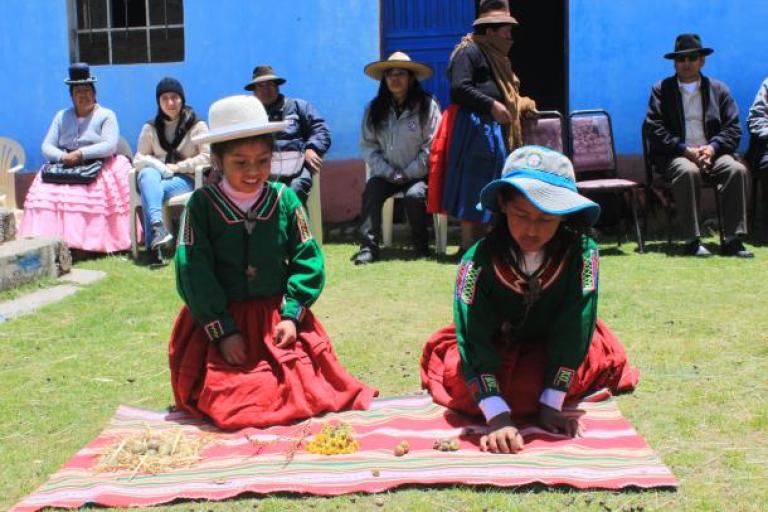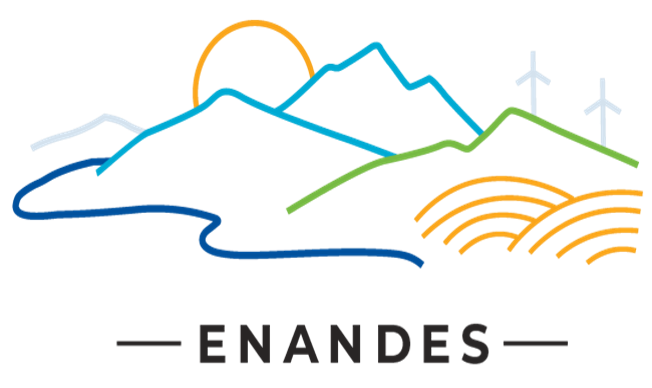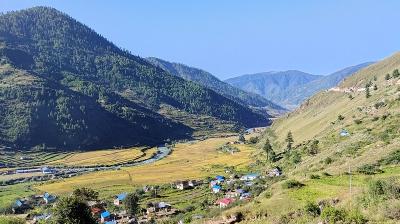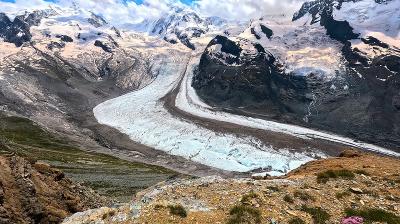ENANDES fosters climate adaptation in the Andes

A project that spans about 8,000 km (5,000 miles) across three South American countries has been launched in order to maximize cross-border collaboration to increase the reach of vital climate-related information to build resilience.
ENANDES, which stands for Enhancing Adaptive Capacity of Andean Communities through Climate Services, will be carried out Chile, Colombia, and Peru in order to produce and communicate scientific knowledge that will guide societies to best adapt to the impacts of climate change. The World Meteorological Organization is the leading implementing partner.
The Andean region is vulnerable to natural climate variability due to the El Niño Southern Oscillation which impacts precipitation and temperature. Climate change is adding to the challenges and having a major impact on high mountain ecosystems and the cryosphere, and is leading to an upsurge in hazards in the short-term and the risk of long-term water stress.
“The complex interaction among these factors is already posing unprecedented systemic risks in the regional ecosystems and infrastructure, calling for innovation to manage resources, enhance livelihoods and reduce poverty,” said Raul Polato, Project Officer at WMO.
“ENANDES recognizes how the central role that climate plays in human welfare so far has not been matched with a corresponding ability to use information and knowledge for climate adaptation measures,” he added.
The project aims at enhancing the provision at national and regional level of climate services – namely the timely production, translation, and delivery of climate information and knowledge for societal decision making.
ENANDES, financed by the Adaptation Fund, was originally intended to start by August 2020 but, due to the Covid-19 pandemic, the implementation phase was pushed back and launched in February as a virtual event.
The objective of this virtual meeting, spread over three days, was to foster commitment and collaboration among the involved partner institutions, thus together achieving the project objectives. Participants included institutional authorities and government representatives of Chile, Colombia and Peru, experts from executing partners and relevant national, regional or international allies and stakeholders.

Mikko Ollikainenn, Executive Manager of Adaptation Fund, highlighted the central role of Climate in Human Welfare, and the raising interest in enhancing operational provision of Climate Services that at regional and national level is foremost important for climate risk management and adaptation to climate change.
Since 2015, the Adaptation Fund has already supported 14 projects. ENANDES is the third WMO regional project approved for funding. He added that ENANDES will yield tangible experience to facilitate operational implementation of climate services in Colombia, Chile and Peru, hopefully offering a model for other (countries), for replication and scaling up.
Ken Takahashi Guevara, General Director of the National Hydrological and Meteorological service of Peru (SENAMHI), highlighted the importance of the project for the populations settled in the demonstration areas. One of these, the Rimac basin is very diverse in terms of socio-economic development, cultural identity, communities and stakeholder’s variety and is vulnerable to several natural hazards affecting directly the population living downstream in capital city of Lima.
The relevance for watershed management of ENANDES outputs was also mentioned by Yolanda González Hernández, Director of IDEAM in Colombia and recently elected President of WMO Regional Association III (South America).
Reinaldo Gutiérrez Cisterna, Director of Chile’s national meteorological and hydrological service, stated how ENANDES will provide concrete support to strengthen the coordination and collaboration efforts among national institutions to supply stakeholders and population with real time and reliable climatic and meteorological forecasts, warnings and information.
Addressing three priority sectors – agriculture and food security, disaster risk reduction, and water and energy – ENANDES is structured under four components.
The first aims to design, produce and communicate climate and water-related science for policy and decision-making at all levels, while the second intends to expand the tailoring of weather information by improving gridded regional datasets and validating climate change projections.
In the third and fourth phases, ENANDES will work on capacity building by running workshops and training activities to various stakeholders, including smallholder farmers and micro-hydropower operators. The project aims to produce a ‘toolkit’ of science and user-friendly weather data to be used across the region to better plan growing seasons and respond to climate threats more efficiently.









